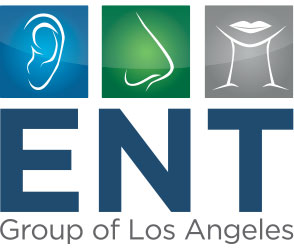Hearing & Balance
The physicians and staff of the ENT Group of Los Angeles have put together the following resources in order to better assist you.
Ménière’s Disease
Ménière’s disease involves abnormalities in the inner ear that lead to hearing and balance problems. This condition usually occurs in only one ear and is most common among adults in their 40s and 50s. According to the National Institute on Deafness and Other Communication Disorders, over 600,000 people in the US have Ménière’s disease.
Although the specific cause of Ménière’s disease is not known, it is believed to be a result of an abnormal volume or composition of fluid in the inner ear. This may occur after a rupture of the membranous labyrinth, a portion of the inner ear. Ménière’s disease causes recurring vertigo, tinnitus (ringing in the ears), hearing loss and a feeling of fullness or pressure in the ear. These symptoms can vary greatly in severity, duration and frequency depending on each individual.
Ménière’s disease can be diagnosed by assessing your symptoms and ruling out other conditions. Your doctor may perform a series of tests such as a hearing test, balance assessment, MRI and complete physical examination. Patients must usually experience most or all of the symptoms in order to be diagnosed with Ménière’s disease.
While there is no cure for Ménière’s disease, there are several treatment options available to help control the symptoms. Your doctor may prescribe medication for episodes of vertigo, as well as long-term medication and dietary changes to help reduce fluid retention. Other healthy lifestyle changes, such as avoiding caffeine, stress and alcohol, can also help improve symptoms. Surgery can be performed for patients with severe vertigo attacks. Surgery can involve removing part or all of the inner ear, decreasing fluid production or cutting the nerve that connects balance sensors and the inner ear.
It is important to take certain precautions with Ménière’s disease in order to control episodes of vertigo and prevent injury and embarrassment. Short periods of rest are often required after an attack. Talk to your doctor for tips on how to handle Ménière’s disease.
For more information on any of our services please call (844) 4-ENTDOC (844) 436-8362.
